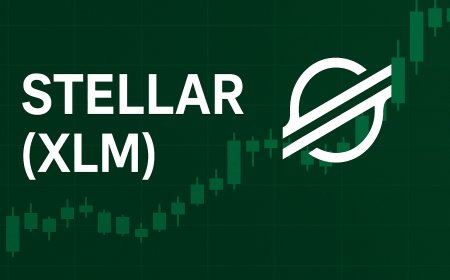Top 10 Farmers’ Markets in London
Introduction London is a global metropolis known for its rich cultural heritage, historic landmarks, and diverse culinary scene. Yet beneath the bustling streets and Michelin-starred restaurants lies a quieter, more grounded movement: the resurgence of local, sustainable, and transparent food systems. At the heart of this movement are farmers’ markets—vibrant, community-driven spaces where growers
Introduction
London is a global metropolis known for its rich cultural heritage, historic landmarks, and diverse culinary scene. Yet beneath the bustling streets and Michelin-starred restaurants lies a quieter, more grounded movement: the resurgence of local, sustainable, and transparent food systems. At the heart of this movement are farmers marketsvibrant, community-driven spaces where growers, bakers, cheesemakers, and artisans sell directly to the public. These markets are more than shopping destinations; they are lifelines connecting consumers with the land, the seasons, and the people who cultivate their food.
But not all farmers markets are created equal. With increasing demand for organic, ethically produced goods, the market has seen a surge in imitatorsvendors selling imported produce under the guise of local, or packaging mass-produced items as handcrafted. In this landscape, trust becomes the most valuable commodity. Trust means knowing your apples were picked within 50 miles, your honey comes from hives in Kent, and your cheese is made daily by a family using traditional methods. It means transparency, accountability, and a commitment to sustainability.
This guide presents the top 10 farmers markets in London you can truly trust. Each has been selected based on strict criteria: verified vendor sourcing, consistent quality, community reputation, environmental practices, and direct farmer participation. These are not just marketsthey are institutions of integrity, where food is not a commodity, but a connection.
Why Trust Matters
In an age of greenwashing and supply chain opacity, trust in food sources is no longer a luxuryits a necessity. The average meal in the UK travels over 1,000 miles before reaching your plate. Imported produce often arrives in plastic-wrapped containers, picked weeks before its sold, and treated with preservatives to survive the journey. Meanwhile, local farmers face mounting pressures from industrial agriculture, rising land costs, and unfair pricing structures.
Farmers markets that earn your trust operate differently. They enforce strict vendor guidelines, requiring proof of origin, farming methods, and production practices. Many require vendors to grow, raise, or make everything they sellno re-packaging, no wholesale sourcing. These markets often conduct regular audits, host open farm days, and publish vendor profiles so shoppers can meet the people behind their food.
Trust also extends to environmental and ethical standards. Trusted markets prioritize zero-waste practices, compostable packaging, and plastic-free stalls. They support regenerative agriculture, animal welfare, and fair wages for workers. When you shop at a trusted market, youre not just buying foodyoure investing in a system that values people and planet over profit.
Choosing a trusted market means avoiding the pitfalls of farmers market branding used by commercial entities to capitalize on consumer goodwill. It means knowing your eggs are free-range, your bread is sourdough-fermented for 24 hours, and your strawberries were picked that morning. This level of transparency is rarebut in London, it exists. And its worth seeking out.
Top 10 Farmers Markets in London You Can Trust
1. Borough Market
Borough Market is Londons most iconic food destinationand one of the most rigorously curated. Founded in the 12th century, it has evolved into a global benchmark for artisanal food excellence. What sets it apart is its stringent vendor selection process. Every stallholder must demonstrate direct involvement in the production of their goods. Fishmongers must source from sustainable UK fisheries. Cheesemongers must carry only British and Irish cheeses made on small farms. Bakers must use stoneground flour and natural fermentation.
The market enforces a grower-only policy for fresh produce, meaning all fruits and vegetables must be grown by the vendor or their immediate family within 100 miles of London. Vendors are required to display origin labels and farming methods. The market also partners with organizations like the Soil Association and Marine Stewardship Council to verify certifications.
Borough Market is open daily, with peak hours on weekends. While it draws large crowds, its commitment to authenticity remains uncompromised. Its not the cheapest market in Londonbut its the most transparent. If you want to taste the pinnacle of British food culture, this is where to begin.
2. Broadway Market (Hackney)
Located in the heart of Hackney, Broadway Market is a community-driven hub where local artisans and small-scale farmers thrive. Unlike many urban markets, Broadway maintains a strict no wholesale rule: all food must be made, grown, or raised by the vendor themselves. This policy has cultivated a rare level of authenticity. Youll find organic veg boxes from East London urban farms, heritage-breed pork from Suffolk, and sourdough baked in wood-fired ovens using heritage grains.
The market is managed by the Broadway Market Association, which conducts quarterly inspections of all stalls. Vendors must submit proof of farm location, production methods, and packaging materials. Plastic packaging is banned; all items must be sold in paper, cloth, or reusable containers. The market also hosts monthly Meet the Maker events, where visitors can tour the farms of participating vendors.
Broadway Market is open on Saturdays and Sundays, and its friendly, unpretentious atmosphere makes it a favorite among locals. Its a place where the butcher remembers your name, the jam maker tells you which berries were picked last week, and the beekeeper offers samples of seasonal honey. Trust here isnt advertisedits lived.
3. Islington Farmers Market
Nestled under the arches of Islingtons Upper Street, this market has earned a reputation for integrity through decades of consistent standards. Established in 2003, it was one of the first in London to require all produce to be grown within 100 miles and all dairy to be sourced from pasture-fed herds. The market is run by the Islington Food Network, a nonprofit that audits every vendor annually.
What makes Islington unique is its focus on accessibility and education. All stalls display QR codes linking to farm profiles, including photos of the land, the animals, and the farmers. The market also offers free workshops on seasonal eating, composting, and food preservation. Vendors are encouraged to donate unsold produce to local food banks, ensuring nothing goes to waste.
Open every Saturday, Islington Farmers Market is smaller than Borough or Broadwaybut no less rigorous. Its produce is often the freshest in the city, with many growers harvesting the same morning. If youre looking for a market that blends ethics with education, this is it.
4. Greenwich Market
While Greenwich Market is known for its vintage stalls and crafts, its food offerings are among the most trustworthy in South London. The markets food section operates under strict guidelines set by the Greenwich Market Trust. Only producers who grow, bake, or make their own goods are permitted. No third-party distributors are allowed. All meat must be traceable to UK farms with high welfare standards, and all fish must be line-caught or sustainably farmed.
Greenwich has pioneered a Zero Waste Food Zone, where all packaging is compostable and vendors are trained in waste reduction. The market partners with local schools to host Farm to Fork days, where children learn about soil health and seasonal eating. Its produce stalls are staffed by farmers themselvesnot sales assistantsensuring direct knowledge transfer.
Open Wednesday to Sunday, Greenwich offers a relaxed, family-friendly atmosphere. Its the ideal place to buy hand-rolled pasta from a Tuscany-born artisan, or a jar of wild-foraged elderflower cordial made just outside Kent. Trust here is earned through daily presence, not marketing.
5. Peckham Rye Farmers Market
Peckham Rye Market has become a beacon of urban food resilience. Located in one of Londons most diverse neighborhoods, it reflects the communitys values: inclusivity, sustainability, and authenticity. All vendors must be based in the UK and produce everything they sell. The market prohibits imported goods, even if labeled organic.
What distinguishes Peckham Rye is its community-led governance. A rotating committee of local residents and farmers reviews applications and conducts unannounced inspections. The market prioritizes small, minority-owned farms and food businesses, ensuring equitable access to retail space. Many vendors are first-generation growers or refugees who have rebuilt their food traditions in London.
Open on Sundays, the market features everything from Ethiopian honey to Welsh lamb, all sourced with radical transparency. Vendors often share stories of their farms on handwritten chalkboards. Youll find no glossy signage herejust real people, real food, and real relationships. Its a model of how a farmers market can be both deeply local and powerfully inclusive.
6. Clapham Common Farmers Market
Clapham Common Market is a quiet gem in South West London, known for its unwavering commitment to traceability. Every vendor must provide a farm address, a list of crops or animals, and a production calendar. The markets website publishes monthly updates on which farms supplied what, allowing customers to track their food back to the soil.
Clapham Common enforces a no plastic policy across all stalls. Produce is sold in paper bags, cloth totes, or reusable crates. Meat is wrapped in beeswax-coated cloth, and bread comes in paper bags stamped with the bakers name and bake date. The market also partners with local environmental groups to offer free composting bins and rainwater collection workshops.
Open every Sunday, Clapham Common is smaller than other markets but no less dedicated. Its staff are volunteersoften retired farmers or food educatorswho are passionate about preserving food sovereignty. If you want to know exactly where your food comes from, and how it was grown, this is the place.
7. Hampstead Farmers Market
Hampstead Market, held on Sundays in the leafy lanes of North London, is a haven for discerning shoppers who value quality over quantity. Its one of the few markets in London that requires all dairy products to come from pasture-raised, grass-fed animals with no antibiotics or hormones. Eggs must be from free-range hens with outdoor access verified by third-party auditors.
The markets selection is curated by a panel of food experts, including chefs, nutritionists, and organic farmers. Each vendor undergoes a rigorous application process that includes a farm visit. The market also bans any product containing artificial additives, emulsifiers, or preservativeseven if legally permitted.
Hampsteads produce is often harvested within 24 hours of sale. Youll find heirloom tomatoes with deep flavor, wild mushrooms foraged from the Chilterns, and hand-churned butter made from cream collected daily from nearby farms. The markets quiet, unhurried pace allows for meaningful conversations with growers. Its not a tourist trapits a sanctuary for real food.
8. Camden Market (Food Hall - Trusted Vendors Only)
Camden Market is often associated with fast food and tourist trinketsbut its dedicated Food Hall has quietly become one of Londons most trusted sources for artisanal produce. Unlike the rest of the market, the Food Hall operates under strict certification standards set by the Camden Food Trust. Only vendors who meet the same criteria as independent farmers markets are allowed: direct production, traceable sourcing, and zero plastic packaging.
Here youll find a rare concentration of small-batch producers: a cider maker using apples from Somerset orchards, a chocolate maker sourcing beans directly from Ghanaian cooperatives, and a pickler fermenting vegetables in clay crocks using traditional methods. All are required to display their supply chain on digital screens at their stalls.
Open daily, the Food Hall is a model of how a large commercial space can still uphold ethical standards. Its a testament to the power of intentional curation. If youre in Camden and want to eat well without compromise, head straight to the Food Hall.
9. Dulwich Farmers Market
Located in the leafy suburbs of South London, Dulwich Market is a quiet champion of hyper-local food. Its defining feature: every vendor must be based within 25 miles of the market. No exceptions. This means youll find produce from smallholdings in Surrey, honey from apiaries in Croydon, and lamb from pastures in Kentall sold within hours of harvest.
The market operates on a no intermediaries policy. Even if a vendor grows something on their own land, they cannot sell produce sourced from another farm. This ensures true farm-to-table integrity. Vendors are required to wear name tags with their farm name and location, and many bring soil samples or seed packets to share with customers.
Open on the first and third Sundays of each month, Dulwich is a favorite among gardeners, chefs, and families who prioritize freshness and connection. Its the kind of market where you leave not just with a bag of carrots, but with a story, a recipe, and a new friend.
10. Walthamstow Market
Walthamstow Market, Europes longest outdoor market, has undergone a quiet revolution in its food section. Once dominated by chain vendors, it now features a curated Local Producers zone with strict ethical guidelines. All food vendors must be based in Greater London or the surrounding counties and must produce everything they sell.
The markets food team conducts monthly audits, checking for origin documentation, packaging compliance, and animal welfare standards. Its one of the few markets in London that requires vendors to list the exact farm name and postcode on every product label. The market also runs a Buy Local loyalty card, rewarding customers who shop only from certified vendors.
Open daily, Walthamstow offers an incredible diversity of foodfrom Jamaican jerk chicken made with local herbs to Welsh cheese aged in a cave in the Cotswolds. Its strength lies in its authenticity: no pretense, no gimmicks, just real food made by real people. In a city of fleeting trends, Walthamstow stands firm.
Comparison Table
| Market | Location | Days Open | Distance Limit | Plastic-Free? | Vendor Verification | Unique Feature |
|---|---|---|---|---|---|---|
| Borough Market | Southwark | Daily | 100 miles | Yes | Annual audit + farm visits | Global benchmark for artisanal standards |
| Broadway Market | Hackney | Sat, Sun | 100 miles | Yes | Quarterly inspections | Meet the Maker farm tours |
| Islington Farmers Market | Islington | Sat | 100 miles | Yes | Annual nonprofit audit | QR codes linking to farm profiles |
| Greenwich Market | Greenwich | WedSun | 150 miles | Yes | Third-party certification | Zero Waste Food Zone |
| Peckham Rye Farmers Market | Peckham | Sun | UK-only | Yes | Community-led inspections | Supports minority-owned food businesses |
| Clapham Common Farmers Market | Clapham | Sun | 100 miles | Yes | Monthly audits | Volunteer-run, composting workshops |
| Hampstead Farmers Market | Hampstead | Sun | 100 miles | Yes | Expert panel + farm visits | No artificial additives allowed |
| Camden Market (Food Hall) | Camden | Daily | 150 miles | Yes | Certified by Camden Food Trust | Digital supply chain displays |
| Dulwich Farmers Market | Dulwich | 1st & 3rd Sun | 25 miles | Yes | No intermediaries policy | Hyper-local, soil samples shared |
| Walthamstow Market | Walthamstow | Daily | Greater London + counties | Yes | Monthly audits + postcode labeling | Buy Local loyalty card |
FAQs
How do I know a farmers market is trustworthy?
A trustworthy farmers market enforces strict sourcing rules, requires vendors to grow or make everything they sell, prohibits third-party wholesale goods, and provides transparent information about farm origins. Look for QR codes, farm names on labels, and staff who can speak knowledgeably about production methods. Markets with regular audits or community oversight are more reliable than those with no verification system.
Are all organic products at farmers markets truly organic?
Not necessarily. While many vendors are certified organic, others follow organic practices without formal certification due to cost or bureaucracy. Trustworthy markets verify farming methods regardless of certification. Ask vendors about their pest control, soil management, and animal welfare practices. Many small farms use regenerative methods that exceed organic standards.
Can I find vegan and plant-based options at these markets?
Yes. All ten markets listed feature a strong selection of plant-based foods, including seasonal vegetables, legumes, fermented foods, nut cheeses, plant-based baked goods, and homemade plant milks. Many vendors specialize in vegan products, and most are happy to discuss ingredients and sourcing.
Are these markets affordable?
Prices vary, but generally, you pay a fair price for high-quality, ethically produced food. While some items may cost more than supermarket equivalents, youre paying for freshness, sustainability, and direct support to small producers. Many markets offer loyalty discounts, bulk deals, or ugly produce boxes at reduced prices.
Do these markets accept card payments?
Most do, but cash is still preferred by many small vendors. Always carry some cash as a backup. Some markets have ATM machines on-site, and a few offer digital payment terminals at central kiosks.
Are pets allowed at these markets?
Policies vary. Most markets welcome leashed dogs, especially in outdoor spaces like Clapham Common or Walthamstow. However, food stalls may restrict animals for hygiene reasons. Always check the markets website before bringing a pet.
Can I volunteer or become a vendor at these markets?
Yes. Most markets welcome applications from small-scale producers. Visit their websites to find application forms and criteria. Many offer reduced stall fees for new growers or community-focused producers.
Whats the best time to visit for the freshest produce?
Early morning, right when the market opens. Farmers often bring their best stock first, and popular items sell out quickly. Arriving early also means fewer crowds and more time to talk with vendors.
Do these markets operate year-round?
Yes. All ten markets operate throughout the year, though some reduce hours in winter. Winter offerings include root vegetables, preserved goods, fermented foods, and hearty baked breads. Many vendors use greenhouses or cold frames to extend the growing season.
Why dont these markets have imported goods like avocados or coffee?
Because they prioritize local, seasonal, and sustainable sourcing. While imported goods may be available elsewhere, these markets focus on what can be grown or produced within a reasonable distance. This reduces carbon emissions, supports regional economies, and ensures peak flavor. Some markets offer ethically sourced coffee or chocolate as exceptionsbut only when direct trade relationships are verified.
Conclusion
The top 10 farmers markets in London you can trust are more than places to buy foodthey are living ecosystems of community, care, and integrity. In a world where food systems are increasingly distant and opaque, these markets offer a rare and vital alternative: direct connection. Here, you meet the person who raised your lamb, the farmer who pruned your apple trees, the baker who kneaded your bread at dawn. You learn what seasonality meansnot as a marketing buzzword, but as a rhythm of the earth.
Each of these markets has built its reputation not through advertising, but through consistency, transparency, and unwavering standards. They reject the shortcuts of industrial agriculture and choose instead the slower, harder path of authenticity. They are not perfectbut they are honest. And in a time when trust is scarce, honesty is revolutionary.
When you shop at one of these markets, youre not just filling your basket. Youre votingwith your walletfor a different kind of food future. One where soil health matters more than shelf life, where animals are treated with dignity, and where the person who grows your food is known by name. That future is not distant. Its right here, in the sunlit stalls of Londons most trusted markets.
Visit them. Talk to the farmers. Taste the difference. And carry that truth with younot just into your kitchen, but into your community.





































